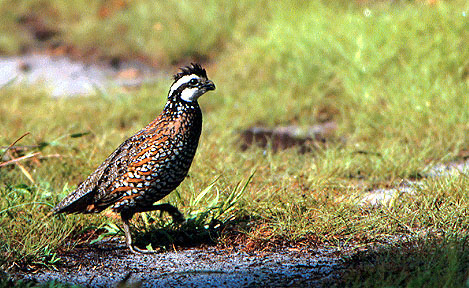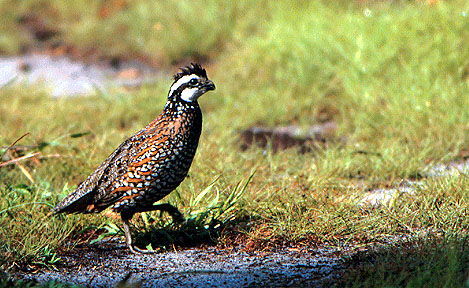Texas Parks and Wildlife Department (TPWD) reported that Arthur “Buddy” Temple and his wife Ellen have been presented the 2011 Leopold Conservation Award for Texas for their transformation of an over-grazed, over-hunted South Texas ranch into a haven for wildlife and valuable research venue. Recognition is conferred each year by Sand County Foundation and Texas Parks and Wildlife Department as part of its Lone Star Land Steward Awards program for wildlife management.

The Leopold Conservation Award honors the legacy of Aldo Leopold (1887-1948), considered the father of wildlife ecology. His collection of essays, “A Sand County Almanac,” remains one of the world’s best-selling natural history books. Leopold’s godson, Reed Coleman, formed Sand County Foundation in 1965 to protect the Leopold farm from encroaching lot development along the Wisconsin River.
The Temple family and their ranch operators, the Sanders, took a worn out South Texas ranch and turned it into a model operation. Their work in reviving this ranch and restoring its historic ranch house and other sites is truly worthy of being honored with an award named for Aldo Leopold. In nominating the Temple Ranch for the award, TPWD wildlife biologist Daniel Kunz of Alice pointed to these wildlife management accomplishments:
- Quail management: Through efforts such as brush management, prescribed fire (patch burning), targeted grazing, native plant restoration, invasive plant control, water distribution, spreader dams, strategic harvest and participation in CKWRI Quail Associates, the owner-operators have increased usable space, overall bird numbers, and created a better distribution of quail throughout the ranch. Overall quail management efforts have focused on the fundamental need of bobowhite quail, providing good habitat.
- Deer management: Increased body weights and better age structure in deer found on the ranch are attributed to the owner-operator’s commitment to intensive harvest management, water distribution, prescribed burning, brush management, supplemental feeding and use of level 3 managed land deer permits (MLD Permits). Deer management techniques have focused on manipulating age, genetics and nutrition.
- Turkey management: Participation in the South Texas Rio Grande Turkey Project, along with riparian area protection and restoration, prescribed fire, and artificial roosts are all efforts undertaken to improve habitat, population, and understanding of habitat use of turkeys in south Texas. Turkey habitat management efforts have been part of an overall program for enhancing upland game bird habitat.
- Outreach and education: Temple Ranch owner-operators have participated in the South Texas Wintering Bird Program, the Freer ISD field day, Buckskin Brigades, Texas A&M Kingsville range management classes, and Wounded Warrior hunts. The owner-operators have also created native plant demonstration areas for historical preservation and education.
- Historical preservation: Working with archeologists, the owner-operators have restored ranch structures dating from the 1840s-1860s; got an historical marker placed on the ranch and have been working with the Texas Historical Commission to get the ranch added to the National Register of Historical Places.
Sponsors for the 16th annual Lone Star Land Steward Awards include Gulf States Toyota, Sand County Foundation, U.S. Fish and Wildlife Service, Partners in Fish and Wildlife Program; Texas Wildlife Association; H. Yturria Land and Cattle Co.; Lower Colorado River Authority; USDA Natural Resources Conservation Service, Texas and Southwestern Cattle Raisers Association; Texas Agricultural Land Trust; Llano Springs Ranch, Ltd.; Bamberger Ranch Preserve, Gardner Appraisal Group, the Ly.
